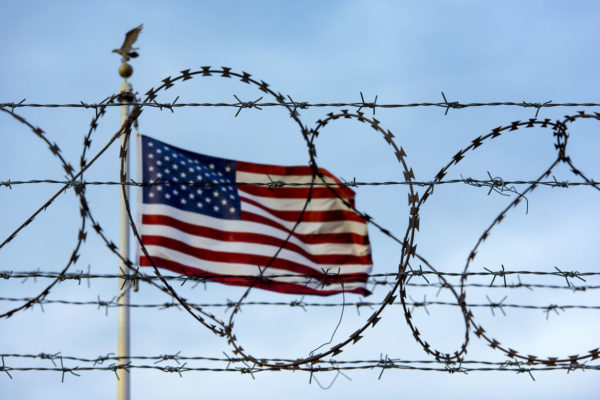Vice President Mike Pence says our government institutions are “literally being overwhelmed” by the people coming across the border.
This was surprising to hear. We have been studying emergency housing and mass migration around the globe for several years. As such, it is hard to believe that the United States does not have sufficient resources, or lacks technical expertise, to rapidly provide decent housing and infrastructure services to vulnerable children.
As members of the engineering and construction professions, we know neither of these is the case.
Not surprising is that Customs and Border Protection is overwhelmed. Providing housing and infrastructure services is a specialized skill, and it is not their job. Through no fault of their own, those responding to the crisis at the border are ill-equipped in terms of skills, resources, experience, institutional knowledge and guidelines. Simply put, Customs and Border Protection should not be managing this. We need folks who are trained to deal with displacements and the Trump administration would be wise to enlist them.
The disaster response community knows how to house people quickly and decently. Although their usual mandate is post-disaster events, the human needs are the same. Shelter, water and sanitation are on top of this list.
For example, international organizations such as UNICEF maintain warehouses of kits that can be assembled to provide decent housing, medical facilities, schools, water and wastewater treatment.
Our military is well-equipped and able to set up emergency housing. They house our troops on every deployment. And the Federal Emergency Management Agency has experience sheltering people in disasters such as Hurricanes Harvey and Katrina.
These are the organizations and people that should be responding. More broadly, the international community has defined the Sphere Standards as guidelines for the minimum acceptable standards in humanitarian response. Items such as soap and blankets – which some of our federal leaders seem to believe may not be necessary for children – are part of these standards.
These standards typically are not applied in developed countries such as the U.S., because historically we exceed them. However, at the border we are not even reaching the minimum standards intended for the poorest places on Earth.
The Sphere Standards do not, of course, meet building codes in the United States. But in an emergency situation, they do prescribe minimums to be met immediately in situations like those we are seeing at the border. A poor state in India, for example, recently successfully evacuated millions from the path of Cyclone Fani, housing many of them in pre-constructed emergency shelters.
We can do better. The United States should do as much or more to protect vulnerable populations as other nations do. Regardless of an individual’s stance on immigration, this should be of paramount concern to all of us.
Moral considerations aside, these conditions are creating an entirely avoidable public health crisis that impacts migrants and the surrounding communities alike. Lack of infrastructure leads to the spread of disease that does not respect the boundaries of the migrant facilities. Without addressing these conditions, surrounding communities will be affected. In fact, we have already seen the beginning of this with sickness and death from a lack of hygiene and medical access.
But what is happening says more. The dysfunctional way we are responding to this crisis is similar to what our nation witnessed with the response to Hurricane Maria’s impacts to U.S. citizens in Puerto Rico. What we consider to be acceptable in terms of living standards post-disaster appears to be decreasing. This should be of concern to anyone who might one day need help after a disaster. In other words, all of us.
Almost two years after Hurricane Maria, people are still struggling to rebuild their homes and infrastructure. It took nearly a decade for New Orleans to recover from Hurricane Katrina. In many ways, Houston is still recovering from Hurricane Harvey in 2017.
Clearly, crisis response is a complicated business. The crisis at our border should be managed by trained disaster response professionals. Our construction and civil engineering professions are able and stand ready to provide the housing and infrastructure solutions. Our lawmakers would be wise to consider this. Children’s lives are literally on the line.
Kasey Faust is an assistant professor of civil, architectural and environmental engineering at The University of Texas at Austin.
Jessica Kaminsky is an assistant professor of civil and environmental engineering at The University of Washington.
A version of this op-ed appeared in USA Today.




